About Us
Who we are
Marinade Hub Fertility Foundation is a non-profit organization driven by its mandate to support families through their fertility journey. We focus on providing support to couples dealing with Infertility through our private facebook Community group and other offline platforms.
Our objectives
1. To provide a safe space socially for families going through infertility to be loved and connect with one another while sharing their daily struggles and getting help.
2. To equip families going through infertility with available and updated knowledge about this subject for informed decisions.
3. To create awareness of the subject of infertility in our society thereby reducing the impact of sociological stress that affects the families.
4. To provide some financial support to families who cannot afford the numerous fertility financial demands.
Mission statement
Mission statement: We are a global fertility foundation that aims to support Families going through Infertility with the Marinade Process they need in their Journey.
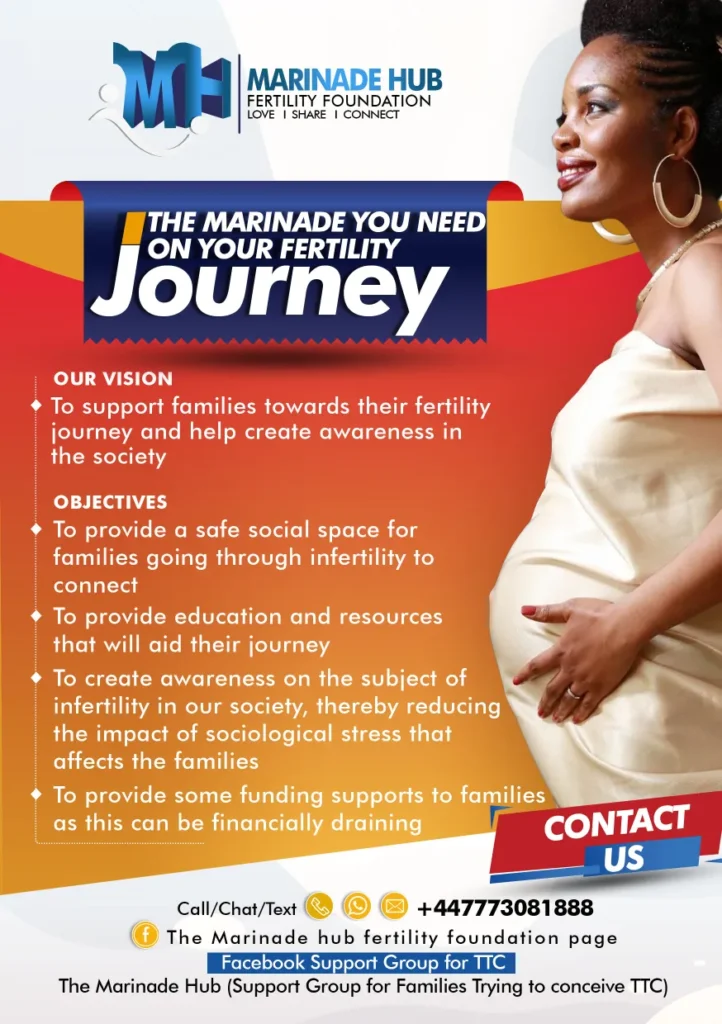

Mrs Sussan Ezinne Ini-ituen
CEO/FOUNDER
This new passion prompted her to further her education in that area so she enrolled into a Masters Degree programme in Gender and Development from the University of Sussex, United Kingdom. During this period of relocation and studies, she was also going through Infertility procedures, this further encouraged her to write her dissertation on Infertility and how biomedical conditions are not enough to describe the struggles women go through in an African context. That whole study process was therapeutic in her journey, involving interviews with women and health professionals to understand more on the experiential dimensions of this issue. She experienced Infertility for nearly six years of actively trying for every possible fertility procedures ranging from several HSGs, Hysteroscopic myomectomy, Laparascopys, 4 IUIs and finally an IVF which was unsuccessful. However, that same month of an unsuccessful IVF Procedure, she concieved. This was how her entire story took a new turn and today she has two beautiful kids 5years and 3years. She is married to her supportive husband who stood by her all through the journey. Mrs Sussan has always had a strong passion for women and development but when the Infertility hit her she was very convinced that there was more to her experience in relation to humanity. The journey was very rough and lonely, most of it was more on the right atmosphere for people to express the whole feeling in the journey and understanding the critical processes towards treatments so she knows without a doubt that there many like her out there who will need a thriving and marinade atmosphere to pull through this journey. This gave birth to the Marinade Hub Fertility Foundation. She started this project firstly in 2019 as a way of creating awareness privately and on social media through her own personal story of Infertility. The feedback was mind blowing, women started coming to seek counsel and listening ears to their situation. This was when it dawned on her that the next move was to set up an appropriate platform to reach out to families on this journey.
- Phone:+234 703 497 6039
- Email:sussan.ini.ituen@gmail.com
Our founder's story
Mrs Sussan Ezinne Ini-Ituen is the founder of the Marinade Hub Fertility Foundation.
She experienced Infertility for nearly six years of actively trying for every possible fertility procedures ranging from several HSGs, Hysteroscopic myomectomy, Laparascopys, 4 IUIs and finally an IVF which was unsuccessful.
However, that same month of an unsuccessful IVF Procedure, she concieved. This was how her entire story took a new turn and today she has two beautiful kids 5years and 3years old. She is married to her supportive husband who stood by her all through the journey.
Mrs Sussan has always had a strong passion for women and development but when the Infertility hit her she was very convinced that there was more to her experience in relation to humanity.
Read more...
This new passion prompted her to further her education in that area so she enrolled into a Masters Degree programme in Gender and Development from the University of Sussex, United Kingdom. During this period of relocation and studies, she was also going through Infertility procedures, this further encouraged her to write her dissertation on Infertility and how biomedical conditions are not enough to describe the struggles women go through in an African context. That whole study process was therapeutic in her journey, involving interviews with women and health professionals to understand more on the experiential dimensions of this issue. She experienced Infertility for nearly six years of actively trying for every possible fertility procedures ranging from several HSGs, Hysteroscopic myomectomy, Laparascopys, 4 IUIs and finally an IVF which was unsuccessful. However, that same month of an unsuccessful IVF Procedure, she concieved. This was how her entire story took a new turn and today she has two beautiful kids 5years and 3years. She is married to her supportive husband who stood by her all through the journey. Mrs Sussan has always had a strong passion for women and development but when the Infertility hit her she was very convinced that there was more to her experience in relation to humanity. The journey was very rough and lonely, most of it was more on the right atmosphere for people to express the whole feeling in the journey and understanding the critical processes towards treatments so she knows without a doubt that there many like her out there who will need a thriving and marinade atmosphere to pull through this journey. This gave birth to the Marinade Hub Fertility Foundation. She started this project firstly in 2019 as a way of creating awareness privately and on social media through her own personal story of Infertility. The feedback was mind blowing, women started coming to seek counsel and listening ears to their situation. This was when it dawned on her that the next move was to set up an appropriate platform to reach out to families on this journey.
- Phone:+234 703 497 6039
- Email:sussan.ini.ituen@gmail.com
One of our success stories
I have been trying to conceive since 2018. Through this group, I learnt how to track my ovulation and I got pregnant with my twins.
– Temitope
Meet our team
Trustees
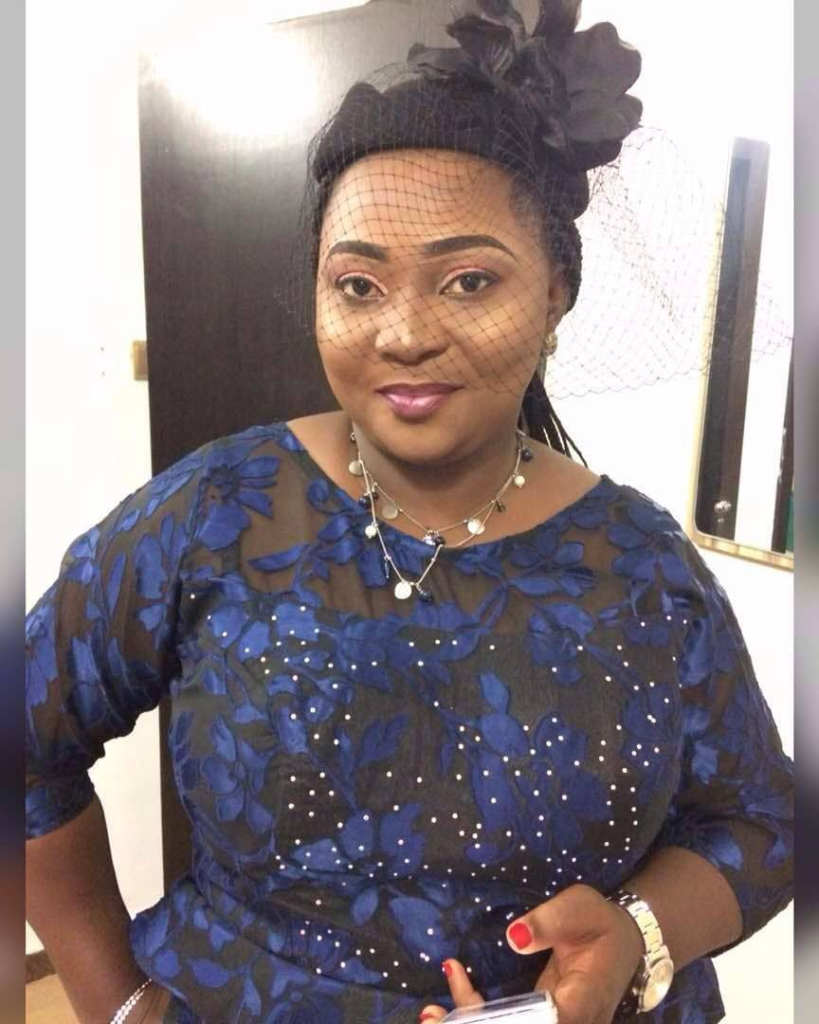
Mrs Ijeoma Uzoma
TRUSTEE
- Phone:+1 (859) 254-6589
- Email:info@example.com
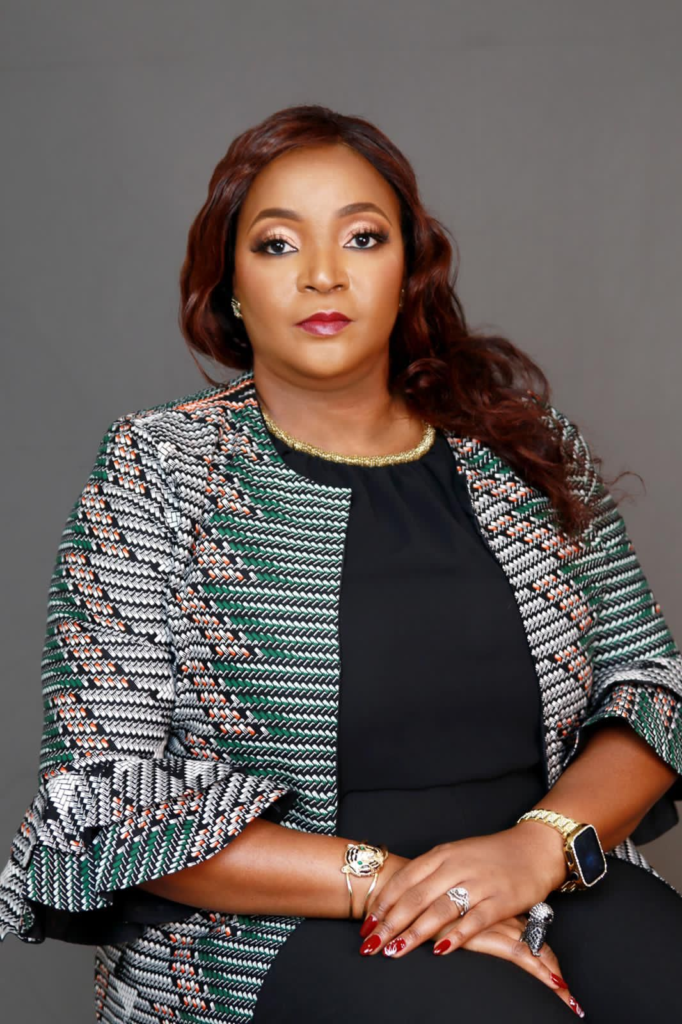
Estella Yahaya
TRUSTEE
- Phone:+1 (859) 254-6589
- Email:estellayahaya@gmail.com
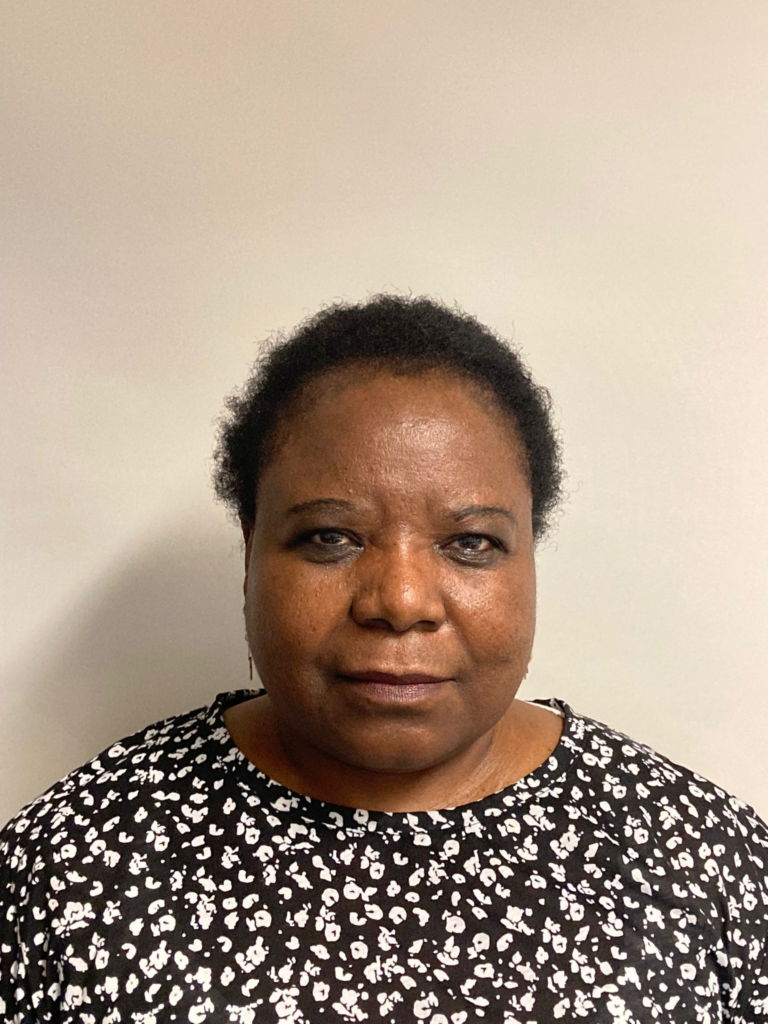
Dr Ruth Datip
TRUSTEE

Dr Ruth Datip
TRUSTEE
- Phone:+1 (859) 254-6589
- Email:harchoji@yahoo.co.uk

Mrs. Wazeh Nicoline
TRUSTEE
- Phone:+1 (859) 254-6589
- Email:wazehwanico@yahoo.co.uk

Ijeoma Anochie
TRUSTEE
- Phone:+1 (859) 254-6589
- Email:Ijeoma.a.anochie@gmail.com

Mrs Chioma Emezi
TRUSTEE
- Phone:+1 (859) 254-6589
- Email:chiomaemezi@gmail.com
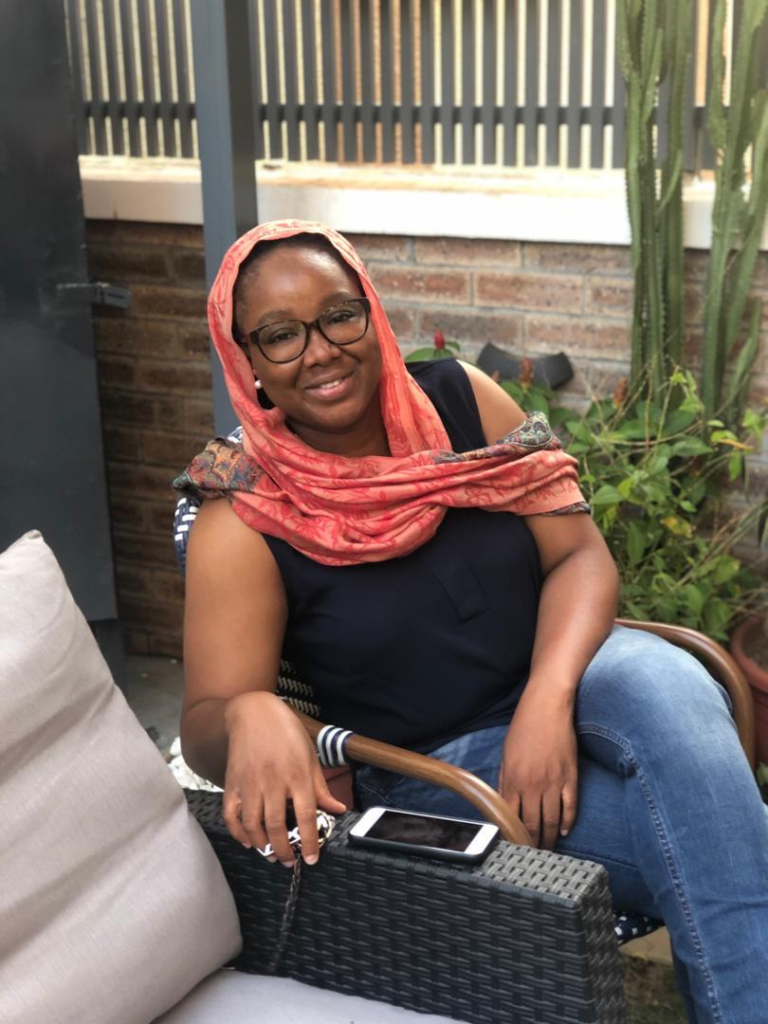
Rahinatu Adamu
TRUSTEE
- Phone:+1 (859) 254-6589
- Email:Rahinatuadamu@yahoo.com

Jane Amaechi
TRUSTEE
- Phone:+1 (859) 254-6589
- Email:janny.amaky@gmail.com
Advisors

Innocent Chukwudubem
Financial Advisor
- Phone:+1 (859) 254-6589
- Email:innocentchukwu@gmail.com

Tobi Kalejaye
Financial Advisor
- Phone:+1 (859) 254-6589
- Email:Oluwatobikal@gmail.com

Mrs Vera Nnadozie
Safeguarding and Quality Control Advisor
- Phone:+1 (859) 254-6589
- Email:verachilly@yahoo.co.uk

Dorcas Mayaki Nworgu
Finance Team Lead
- Phone:+1 (859) 254-6589
- Email:dorcasnworgu1@gmail.com

Chizoba Benita oluwole
Events Team Lead
- Phone:+1 (859) 254-6589
- Email:chizobaoluwole@gmail.com

Rosemary Aboh
Social Media Team Lead
- Phone:+1 (859) 254-6589
- Email:neneaboh@gmail.com

Akinwande Royalty
Research Team Lead
- Phone:+1 (859) 254-6589
- Email:royasmiles1@gmail.com
FAQ's
It’s a Non-governmental organisation that provides a wholistic marinade support to couples trying to conceive until they give birth to their babes. This includes emotional, mental, educational, physical, spiritual and financial support.
Marinade Hub started officially September 2021, however the founder was already supporting women from 2015 right from when her own testimony broke through.
Yes, we have specific groups for IVF, Pregnancy, Fitness, and Prayer.
There are several ways you can be part of us:
1. If you are trying to conceive and would need a safe space and support group you can join our Facebook private group via this link
2. If you have gone through Infertility before, broke through with a testimony, we would love to connect with your story. We strongly encourage sharing of positive news as part of therapy for our Hub members. If you can please join our private group above for mentorship or opportunity to encourage others with your story.
3. Another way to be part of this work is to donate financially to the foundation, this is a key part of our work as we continue to subsidise or pay for fertility treatments for our struggling members.
4. We need volunteers in many areas especially Medical, Graphics, Research and Fundraising.
Ans. No, we don’t we are a foundation, we may be able to point you in the right direction.
Finding a support group such as Marinade Hub can be really helpful when you’re struggling with infertility. There are lots of resources in the group to help you cope. Talking about your feelings and experiences can help you process your emotions and ease your mind.
What does infertility mean? Can I ever have children?
Infertility and being sterile are different. Infertility—or, more accurately, subfertility—is diagnosed if a couple is unable to conceive a child after having well-timed, unprotected intercourse over the course of a 12-month time period. It does not mean you may never get pregnant. Sterility is diagnosed after a thorough medical examination indicates the patient has no uterus, no ovaries, no egg production, or no sperm production.
Infertility is found in both men and women, and it affects nearly an equal number of men and women. Approximately one-third of infertility is attributed to the female partner, one-third is attributed to the male partner and one-third is caused by a combination of problems in both partners. However, about 20 percent of infertility cases remain “unexplained” even after a full diagnostic examinations.
If the woman is under the age of 35 and has been trying to conceive for more than one year, we recommend that the couple consult a fertility specialist.
If the woman is over the age of 35 and has been trying to conceive for more than six months, we recommend that the couple consult a fertility specialist.
Yes. Age is the single most important factor that influences a woman’s fertility. A woman is born with all the eggs she will ever have. As a woman ages, her eggs also age, and they diminish in quantity and quality. Currently, there are no methods or treatments available to stop or reverse that process. At age 30, a woman’s chance of conceiving each month is about 20 percent. At 40, it’s about 5 percent.
Yes. The quality of a man’s sperm decreases with age starting at age 40. Declining fertility, however, occurs much more slowly in men than in women
A fertility evaluation should begin with a medical history of both the female and male partners. Both partners will then be asked to undergo a physical exam, including a gynecological exam and pelvic ultrasound for the woman.
A semen analysis will be performed on the man, and a hormone screening will be performed on the woman.
A woman may also undergo an evaluation of tubal patency (whether the fallopian tubes are open or blocked) and the uterine cavity.
The most common treatments for infertility are intrauterine insemination (IUI) and in vitro fertilization (IVF). The fertility specialist will evaluate each couple individually and discuss a personalized treatment plan with each couple based on their specific circumstances. In some cases, reassurance may be all that’s needed.
